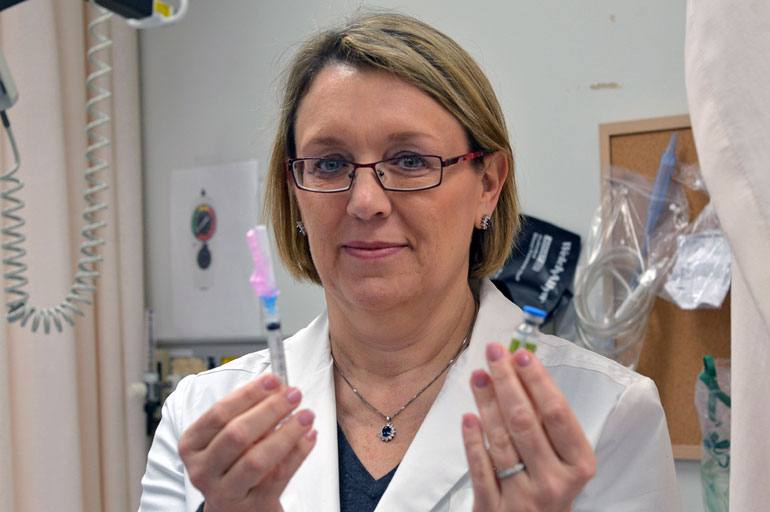Health-care professionals are hesitant to administer the flu vaccine to pregnant women, despite the potential life-saving benefits, according to a UBC study.
The study also shows that pregnant women who were eager to get vaccinated had difficulties because health professionals turned them away.
“The World Health Organization and Health Canada have classified pregnant women as one of the highest at-risk groups of having serious complications following influenza infection,” says Marie Tarrant, director of nursing at UBC’s Okanagan campus. “Given this, the health-care community should work together to protect these moms and their infants. Flu vaccination is one of the best ways.”
“This was a surprising finding.”
Tarrant and her team, including co-author Valerie Wong of the University of Hong Kong, embarked on a research campaign to assess the effect of a brief flu vaccination education program targeted to pregnant women. The study was conducted in Hong Kong where vaccination rates are particularly low and there are two flu seasons.
The researcher found that one-to-one education interventions significantly increased vaccination rates yet the uptake was still low. Upon follow-up with the women, they discovered that some doctors refused to vaccinate or that the vaccines were unavailable.
“Even with the knowledge of benefits of vaccination, there still is this long-held belief that pregnant women should minimize exposing the fetus to any unknown substance, especially those injected into the body,” says Tarrant. “I believe this reluctance is common worldwide.”
“Targeted interventions to health-care professionals and enhanced maternal education may help to address concerns and fears about flu vaccination, and lead to optimal and improved vaccination coverage.”
The flu is a respiratory infection caused by influenza viruses. Canadians typically contract the flu during the late fall and winter. Symptoms may include high fever, chills, sore throat, cough and tiredness. Most people recover within a week but some, including pregnant women, the very young and those over 65 years old, are at increased risk for severe complications. Globally, annual epidemics result in an about one billion cases of influenza, three to five million cases of severe illness, and 250,000 to 500,000 deaths.
Almost 30 per cent of Canadians were vaccinated against the flu last year. This is substantially below Health Canada’s target of 80 per cent.
The study, recently published in Vaccine, was funded by the Health and Medical Research Fund, Government of the Hong Kong Special Administrative Region. To find out more, visit: www.sciencedirect.com/science/article/pii/S0264410X16308325

Marie Tarrant, director of nursing at UBC’s Okanagan campus.
—30—